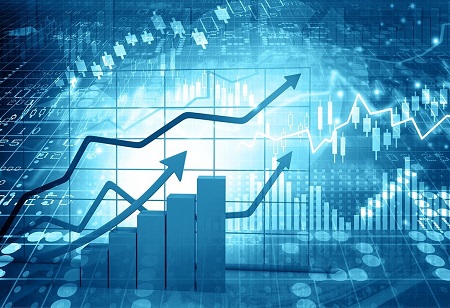
Asia-Pacific markets upswing after largest Fed rate hike since 1994

 Asia-Pacific markets rallied on Thursday tracking U.S. stocks after the Federal Reserve raised benchmark interest rates 75 basis points in a move that equates to the most aggressive hike since 1994.
Asia-Pacific markets rallied on Thursday tracking U.S. stocks after the Federal Reserve raised benchmark interest rates 75 basis points in a move that equates to the most aggressive hike since 1994.
The positive moves followed a tumble across the markets earlier this week following initial news of a strong move by the Fed and concerns of more Covid-related restrictions in mainland China mounted.
Japan’s Nikkei 225 rose 1.4% and it was a sea of green among the automakers and tech stocks. The Topix was up 1.26%.
Sony was up by more than 2%, Softbank Group rose by about 1.6% while Toyota jumped by 4%. Trade data released in the morning showed Japan ran a trade deficit after falls in the yen drove more imports.
In Hong Kong, the Hang Seng index fell by 0.5% with Tencent and Chow Tai Fook sinking by nearly 2 per cent in the first hour of trade.
In mainland China markets, the Shanghai Composite was muted, as it traded just below the flatline. The Shenzhen Component was up 0.36%.
In Australia, the S&P/ASX 200 was trading higher by about 0.5%. Rio Tinto, Fortescue Group and BHP were all pushing higher by nearly 2%.
Australia’s unemployment figures held steady at 3.9% in yet another signal that Australia’s Reserve Bank would, like the Fed and many other central banks, be staying on course to raise rates again. The unemployment rate has now been at 3.9% for three consecutive months but could fall to 3.5% at the end of the year, Capital Economics’ Ben Udy said.
Over in South Korea, the Kospi index also went up by 1.25% with big leaps by Samsung, Hyundai and Posco Holdings.
Following the rate hike in the U.S., Wall Street was volatile but market indexes rose to session highs after the Federal Open Market Committee took the level of its benchmark funds rate to a range of 1.5%-1.75% — the highest since just before the Covid pandemic began in March 2020.
Fed Chairman Jerome Powell also said during his afternoon press conference that, “either a 50 basis point or a 75 basis point increase seems most likely at our next meeting.”

